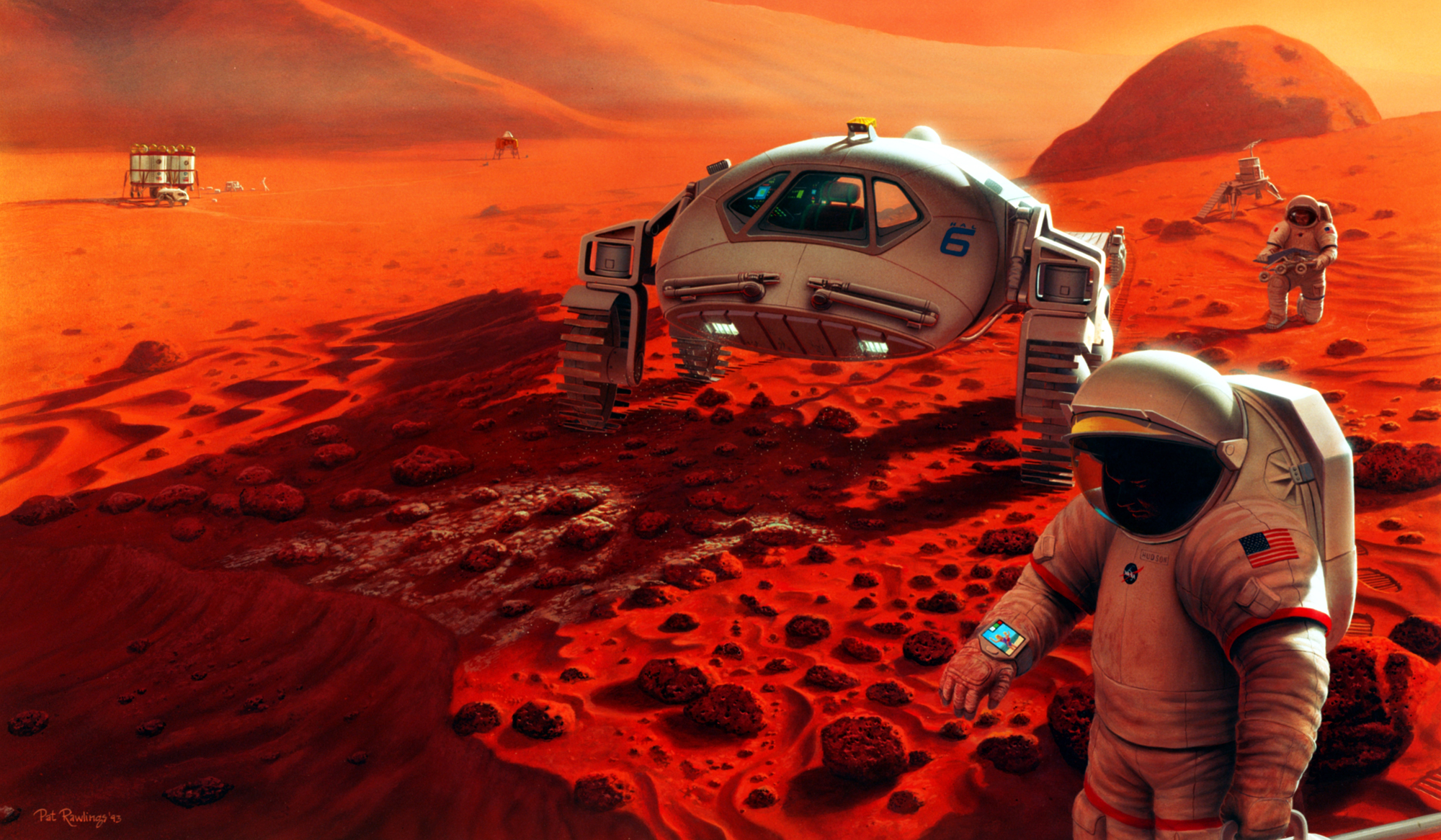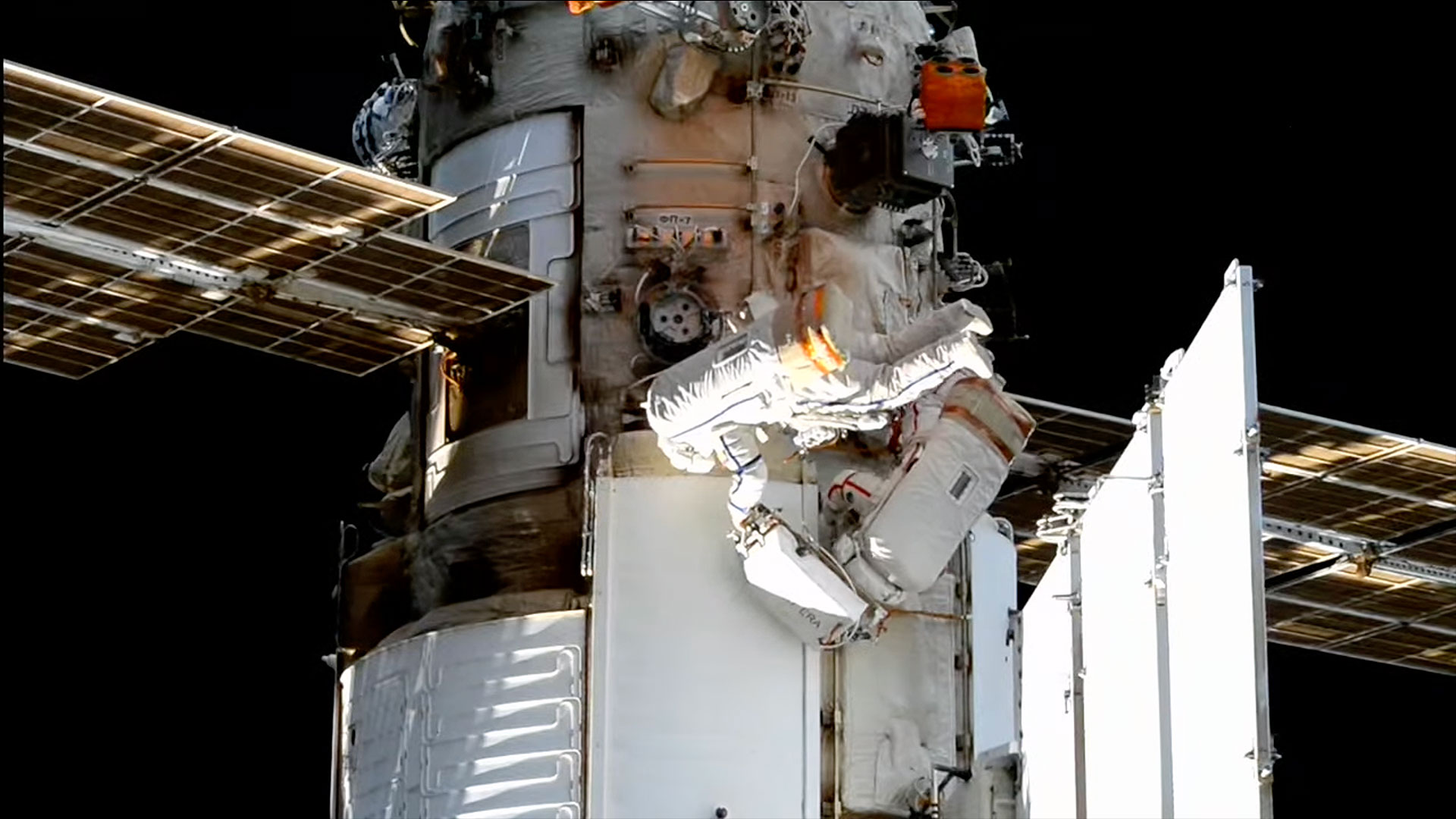NASA Contest Wants Your Ideas to Keep Astronauts Safe on Mars

To prepare for future colonies on Mars, NASA is asking the public for ideas on how to keep Red Planet astronauts safe that require minimal resupplies from Earth.
The "Journey to Mars Challenge" will give a $5,000 award to each of the three winning participants who describe an original idea that could assist the human exploration of Mars. The proposal must be "technically achievable, economically sustainable, and minimize reliance on support from Earth," NASA wrote in a statement about the challenge.
"This could include shelter, food, water, breathable air, communication, exercise, social interactions and medicine, but participants are encouraged to consider innovative and creative elements beyond these examples," NASA added.Because launch costs are considered one of the key barriers to space exploration generally — and Mars exploration, especially — NASA says it could use some ideas on what to bring on these missions and how often to resupply them.
The resupply aspect is especially important to the space agency because resupply opportunities to Mars would happen only every 500 days; the respective orbits between Earth and Mars make it more difficult to send spacecraft at other times. By contrast, the International Space Station has resupplies every few weeks or months.
The agency is looking for ideas that are backed up by a strategy — "a process to develop, test, implement and operate the system or capability," NASA said. More information about the challenge is available at https://www.innocentive.com/pavilion/NASA.
The "Journey to Mars" challenge was announced the same week as the Humans to Mars Summit in Washington, D.C., a conference in which NASA is participating. Experts at the summit are considering the best ways to bring humans to Mars affordably within the next few decades.
In recent months, NASA publicly repositioned its human exploration program as a series of stepping stones to Mars.
Breaking space news, the latest updates on rocket launches, skywatching events and more!
Examples include the current one-year mission on the International Space Station — which is intended to help scientists better understand space's effect on the human body — and a proposed asteroid mission to test human capabilities and technology in deep space.
Follow Elizabeth Howell @howellspace. Follow us @Spacedotcom, Facebook and Google+. Original article on Space.com.
Join our Space Forums to keep talking space on the latest missions, night sky and more! And if you have a news tip, correction or comment, let us know at: community@space.com.

Elizabeth Howell (she/her), Ph.D., was a staff writer in the spaceflight channel between 2022 and 2024 specializing in Canadian space news. She was contributing writer for Space.com for 10 years from 2012 to 2024. Elizabeth's reporting includes multiple exclusives with the White House, leading world coverage about a lost-and-found space tomato on the International Space Station, witnessing five human spaceflight launches on two continents, flying parabolic, working inside a spacesuit, and participating in a simulated Mars mission. Her latest book, "Why Am I Taller?" (ECW Press, 2022) is co-written with astronaut Dave Williams.
